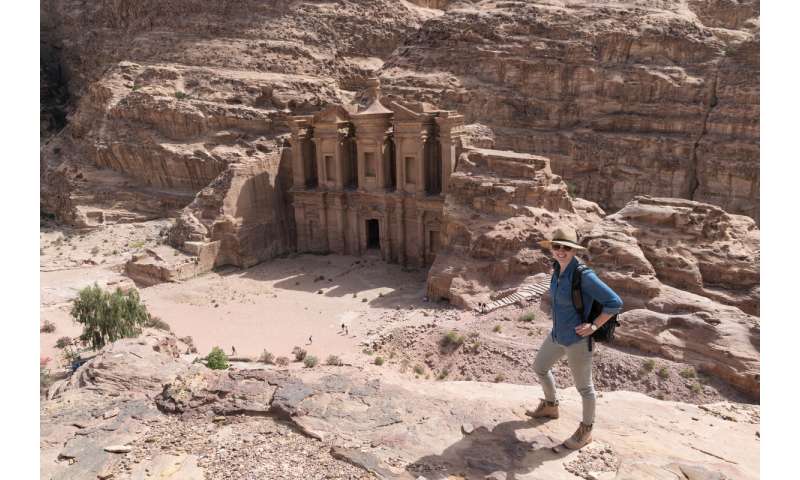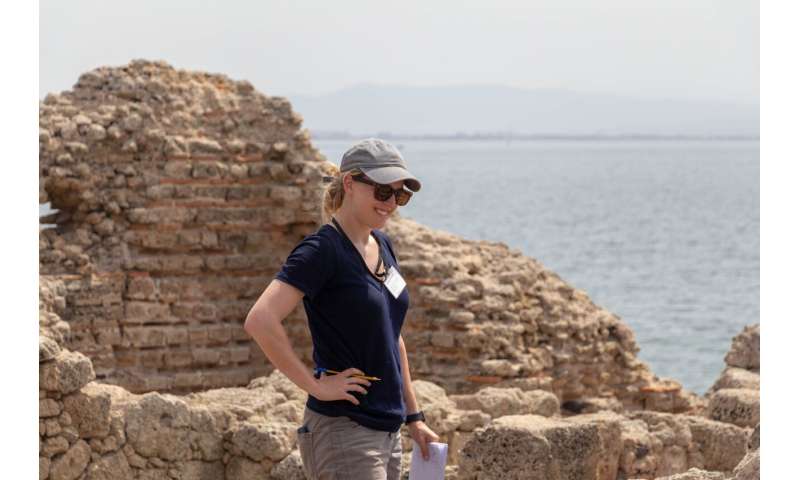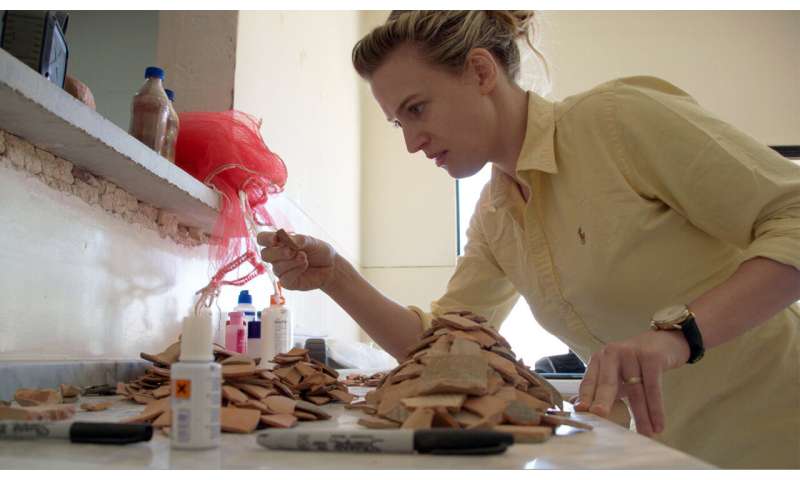National Endowment for the Humanities fellow studies mysteries of ancient Jordan

University of Cincinnati doctoral graduate Sarah Wenner said lessons from the past can inform how we understand politics, society and culture today.
The UC Classics alumna is studying the ancient city of Petra in Jordan as a National Endowment for the Humanities fellow.
Wenner said what we learn about ancient civilizations can have surprising relevance for modern life. It's said that those who forget history are doomed to repeat it.
"History doesn't repeat but it rhymes," Wenner said.
"Not everything we're experiencing is exactly the same, but there are threads that come through. Figuring out what they are and naming them is a really important part of academia as a whole and for archaeology, in particular."
Wenner in the past worked with UC Classics Professor Steven Ellis at the Italian city of Pompeii, which was entombed in ash by the eruption of Mount Vesuvius in 79 A.D.
"It is a very interesting site because of how it was destroyed," Wenner said. "Pompeii has a history centuries long. It's endured so many changes and different configurations. We're only now starting to grapple with it."
Ellis and his students use tools such as photogrammetry to piece together three-dimensional computer models from photos or drawings, allowing researchers to interpret the scale and beauty of ancient structures and artifacts in new ways.
"We're getting a comprehensive understanding of the city beyond that last moment," Wenner said. "Pompeii was more than just a site of destruction and terror. It was a city where people lived. We're trying to understand how they negotiated social and economic relationships and how those relations changed over time."
Ellis said UC has a robust Classics program steeped in history, languages and cultures.
"One of the great joys of studying a degree like Classics is learning different skills and pulling together data from an ancient world where we only have minute traces of evidence," Ellis said. "How do we pull all of that together and weave it into a cohesive story?"

The department has a storied history dating back to Carl Blegen's groundbreaking work at Troy and ancient Greece in the 1930s and '40s. More recently, UC Classics Professor Jack Davis and senior research associate Sharon Stocker made startling discoveries of Bronze Age tombs in Greece, including that of the Griffin Warrior, that were named Top 10 discoveries of the decade by Archaeology magazine.
"Classics is really treated comprehensively here at UC," Wenner said. "You learn about the ancient languages and get deep research in history as well as archaeology. There is a lot of breadth in what you can do here."
Wenner also conducted fieldwork with Ellis at Tharros, an ancient Roman city on the coast of Sardinia. The city was built with access to twin harbors that allowed for landings protected from the wind on two sides of the island.
At Tharros, UC students are using state-of-the-art computer technology to envision ancient life in Sardinia.
"Archaeology is a destructive field. We destroy our data as we collect it," Wenner said.
But with digital modeling, researchers can recreate ancient worlds in vivid detail.
"It takes the information we gather and produces reconstructions of the buildings we're excavating or the temples or the flora—there are so many things we can do to conceptualize the ancient world," she said.
Now Wenner is working in southern Jordan at the ancient city of Petra, which was featured in the finale of "Indiana Jones and the Last Crusade."
"There's this cavernous path with the walls of the mountains on either side that leads to an opening with this grand tomb complex built at the end of the first century," she said. "It's a monumental building. It was meant to impress."
She is studying the Nabataean civilization that lived here between the second and fourth centuries. The UNESCO world heritage site is known as the Nabataean City of the Dead.
Some archaeologists believe bodies were left exposed atop ceremonial altars at Petra for their bones to be stripped by vultures and bleached by the sun in practices that continue today in other parts of the world.

"The Nabataeans had an interesting relationship with the dead. The tombs were left open so more interments could happen over time," she said. "And people interacted with their dead, which is why people thought of it as a city of the dead. But it was really an active city."
Researchers say families would share meals in the company of their dead ancestors and leave tokens of affection.
"It's interesting how those conventions came about and how they were understood," she said.
While Indiana Jones makes archaeology seem romantic, Wenner said it's mostly hard work.
"I spend half of my time in a basement," she said.
Wenner said she has many career options ahead of her. She could teach or work in museums or the humanities.
"Classical archaeology is where my home is. It's where I feel I'm most comfortable," she said.
Wenner earned a bachelor's degree in anthropology and worked as a market analyst before getting her master's degree and coming to UC to pursue a doctorate.
"I had a bit of a circuitous route. But honestly the experimentation you get to do in college gives you a chance to figure out what you like and take as many classes as you can," she said.
"So my advice to other students is don't be too tied to your major. Whatever is stamped on your diploma is not the end-all and be-all of what you can become."
Provided by University of Cincinnati